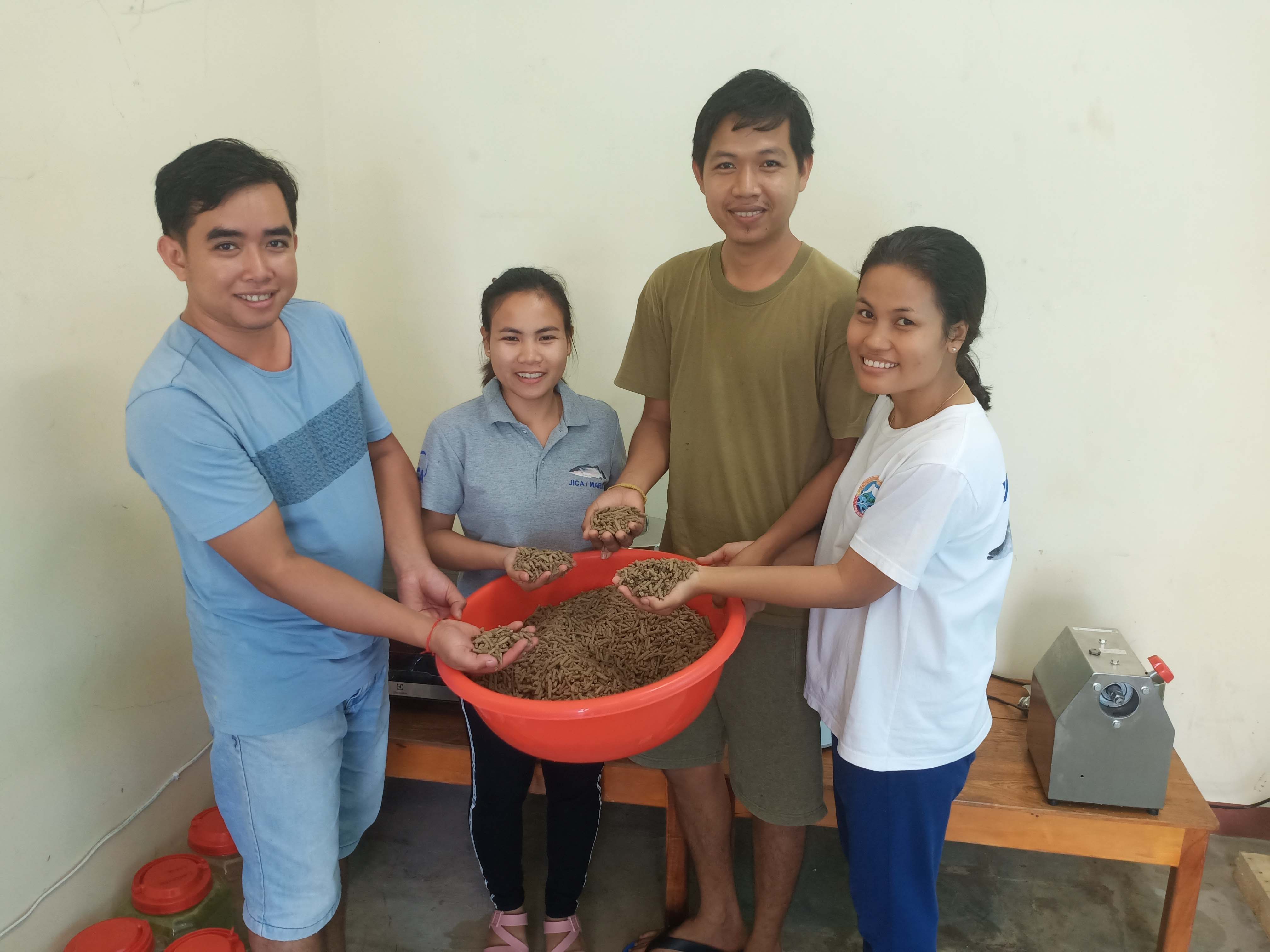For Indonesian finfish mariculture researchers, sharing their knowledge and skills with counterparts in Cambodia was primarily about equipping that team with the information and capacity to grow a valuable local aquaculture sector.
But for the Indonesian researchers, becoming teachers was the catalyst to create educational resources which will now be used to assist with supporting local students, scientists, and farmers.
There were wins for all involved in the Cambodian, Indonesia and Australian project, but the biggest gain was knowledge empowerment and capacity building.
Learning to train
Thanks to this unique, 3-way collaborative 'South-South' ACIAR project, the first 2 Cambodian-authored reports have now been published in international and regional aquaculture industry publications.
Improvements were witnessed across every sector, including mariculture skills, problem solving, English language, report writing, teaching and delivery.
Dr Asda Laining from the Research Institute for Coastal Aquaculture in Indonesia says, 'This was an opportunity to deliver our knowledge and at the same time we were able to improve ourselves.'
With the aid of University of Tasmania Professor Janelle Allison, the Indonesian aquaculture industry developed educational modules to ensure there was efficient knowledge transfer between the 2 countries and application of the required information back at their workplace.
As an education specialist, Professor Allison helped the Indonesian researchers to create teaching modules - the framework for an educational curriculum - for on-site and online learning. The latter proved crucial for a quick "pivot" during the COVID-19 pandemic.

'We learnt and understood how to make a module, how to structure a module and how important modules are to guide learning,' Dr Laining says.
'It enabled us to make training more systematic.'
The modules were designed to ensure both the science and other vital workplace experiences were included in learning outcomes, according to Professor Allison.
'For the Cambodians, if it wasn't working, they had to make contact and feel confident and comfortable with the Indonesians to ask for help.'
'It was building really good scientific communication and confidence. Confidence, mentoring and team building are all essential to good science and good research.'
Finfish learning modules
Collaborative discussions between the 3 project partners resulted in integrated learning modules covering fish nutrition, disease and larval rearing. However, other core skills including research conduct and ethics, publication writing, and occupational health and safety were also taught.
With skills to create a curriculum and the knowledge to teach, Indonesian mariculture researchers plan to structure educational experiences for research centre visitors, and school and university students, Professor Allison says. The Cambodians had access to learning resources they could return to again and again.
'The Indonesians can agree to take other people on placements and they know how to structure the learning and what to do,' Professor Allison says.
'By designing something above a Bachelor they are getting ready for Master's, and the fact it was all in English was another part of the empowerment.'
Support from Indonesian and Australian scientists helped Cambodian researchers to investigate the use of locally available products as ingredients for Asian seabass (barramundi) feed.
Proposed as a more sustainable local aquafeed option to replace the current diet of small "trash fish", this work underpinned the first report by Cambodian scientists published in the World Aquaculture Society magazine.
Mr Somony Thay from the Cambodian Department of Aquaculture Development, Fisheries Administration, says the Cambodian researchers acquired the skills to complete this research through work-integrated learning.
'That's why we encourage interaction with Australian and Indonesian scientists because they learnt how to use the lab and analyse the nutrition... the protein, fibre and produce a report,' says Mr Thay.
Empowering local Cambodian researchers will encourage other university students to work in the mariculture sector: an industry with huge economic potential.
Mr Ao Veasna, Vice Director of Cambodia's Marine Aquaculture Research and Development Centre, was 'motivated' by the project and now has a Japanese scholarship to compete a PhD, according to Mr Thay.
Benefits beyond finfish
Dr Mike Rimmer from the University of the Sunshine Coast, who is leading the project, has worked with Indonesian research institutes since 1998.
He says building capacity within Cambodian mariculture will help to grow the industry nationally.
'There's big industry demand and the industry wants it met locally, but problems in the hatchery are causing the shortfall in production,' says Dr Rimmer. 'We're trying to develop the skills they need to solve these problems themselves instead of being reliant on outsiders all the time.'
In addition to solving issues within the local mariculture industry, Dr Rimmer says the 'generic' skills developed in this project could transfer to other sectors.
'Some of the training we've done in relation to fish nutrition, developing better and more sustainable feeds for the fish and some of the skills and approaches they have learnt from our training - which has been focused on mariculture - they are actually using for freshwater aquaculture,' he says.
'So that means the impact is much broader than the project originally targeted.'
Key points
- Cambodian and Indonesian researchers are collaborating to share finfish knowledge to build their respective industries.
- The ACIAR-supported project involves equipping Indonesians with the skills to develop learning modules for their Cambodian counterparts.
- Both countries have benefited through a mix of improved self-confidence, South-South research collaboration, industry knowledge and teaching capacity.






